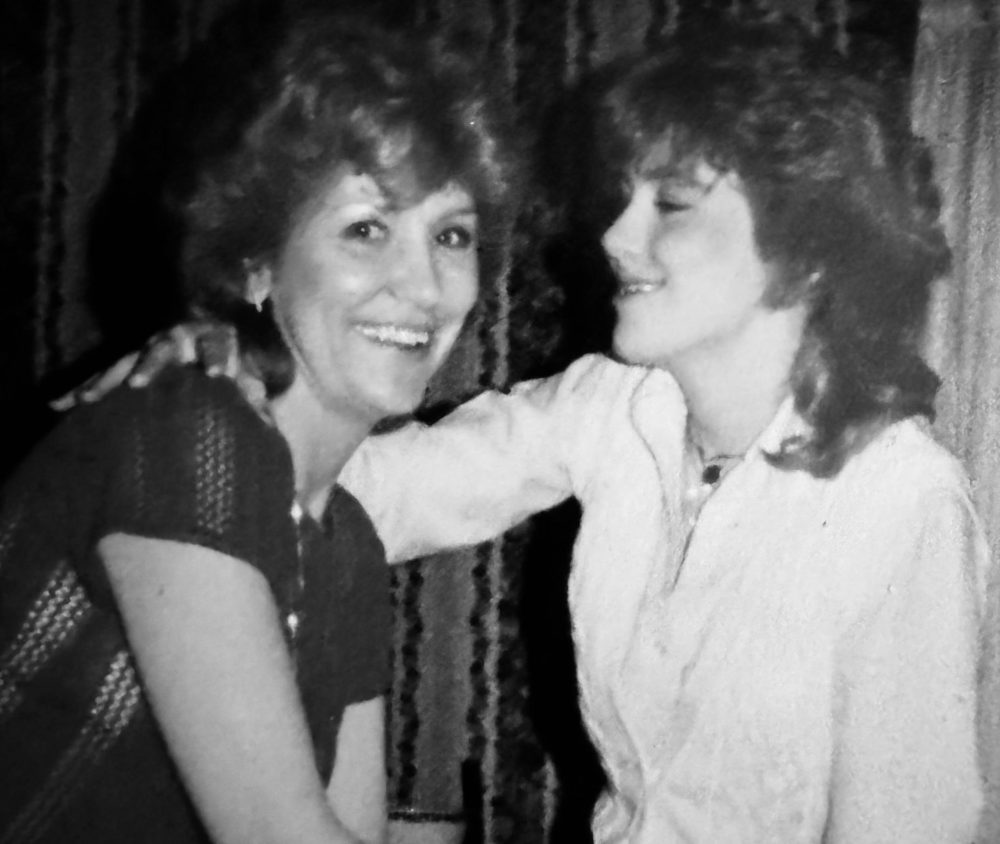Table of Contents
- Why Parents Turn to Medication
- The Three Most Common Bedwetting Drugs
- DDAVP (Desmopressin): The Risks
- Tofranil (Imipramine): The Dangers
- Oxybutynin: The Side Effects
- Why These Medications Don’t Work Long-Term
- The Real Problem Medication Can’t Fix
- A Safer Path to Dry Nights
- Frequently Asked Questions
Hundreds of thousands of children, teens, and even adults deal with bedwetting. When families feel desperate for a solution, many doctors prescribe medication. The promise sounds good: take a pill and the problem might go away.
But here’s what most parents don’t know before they start. These medications come with serious health risks. Even worse, they don’t actually fix bedwetting. They might reduce symptoms while your child takes them. But when the medication stops, bedwetting comes right back.
Let’s look at the three most commonly prescribed drugs for bedwetting. You need to know what they really do and what risks they carry.
Why Parents Turn to Medication
When a child wets the bed night after night, parents want help. They take their child to the doctor hoping for answers. The doctor might run some tests. When nothing shows up, they often write a prescription.
Parents trust their doctors. If the doctor says medication will help, they believe it. They don’t always get told about the risks. They don’t realize the medication won’t solve the problem permanently.
Many families try medication because they don’t know other options exist. They think it’s either medication or just waiting for their child to outgrow it. Neither choice feels good, but medication seems like doing something.
The problem is that medication treats symptoms, not causes. Bedwetting happens because of a sleep disorder. No pill can fix how deeply someone sleeps.
The Three Most Common Bedwetting Drugs
Three medications get prescribed most often for bedwetting: DDAVP (Desmopressin), Tofranil (Imipramine), and Oxybutynin. Each one works differently. Each one carries different risks. But none of them solve the actual problem.
Let’s look at each medication and what parents need to know.
DDAVP (Desmopressin): The Risks
DDAVP is a synthetic hormone. Your body naturally makes a hormone called vasopressin that tells your kidneys to make less urine. DDAVP copies this hormone.
Doctors usually prescribe DDAVP to treat a condition called central diabetes insipidus. But they also prescribe it for bedwetting, hoping it will reduce how much urine the body makes at night.
How It Works
When someone takes DDAVP, their body produces less urine for a few hours. The idea is simple: less urine means less chance of wetting the bed.
The Serious Dangers
DDAVP requires very careful fluid management. If a child drinks too much while taking it, they can develop a life-threatening condition called water intoxication. This happens when the body holds onto too much water, causing an electrolyte imbalance.
This isn’t a small risk. It can be deadly.
Side Effects Include:
- Headaches
- Nausea and stomach problems
- Weight gain from water retention
- Confusion
- Drowsiness
- High blood pressure
- Seizures
- Agitation and restlessness
- Nose bleeds
- Faster heart rate
- Swelling (edema)
- Loss of appetite
- Muscle cramps
- Muscle weakness
The Bottom Line
DDAVP might reduce bedwetting episodes while your child takes it. But it doesn’t fix why they wet the bed. It just makes their body produce less urine. When they stop taking it, bedwetting returns because the underlying sleep problem never changed.
Tofranil (Imipramine): The Dangers
Tofranil is an antidepressant. Yes, you read that right. Doctors prescribe an antidepressant medication to children for bedwetting.
How It Works
Tofranil increases vasopressin, which makes the body hold onto water. It also relaxes the bladder. The medication was designed to treat depression, not bedwetting. But doctors prescribe it “off-label” for this purpose.
Why This Is Concerning
Giving a child antidepressant medication when they’re not depressed raises serious questions. The drug affects brain chemistry. It changes how the brain works. And for what? To temporarily reduce bedwetting?
Side Effects Include:
- Dizziness
- Drowsiness
- Dry mouth and dry eyes
- Blurred vision
- Constipation
- Sun sensitivity
- Hostility
- Personality changes
- Hyperactivity
- Seizures
- Hallucinations
- Confusion
- Low blood pressure
- Loss of appetite
- Allergic reactions
- Trouble urinating
- Suicidal thoughts
That last one is particularly scary. An antidepressant can cause suicidal thoughts in young people. This is a known risk that comes with a black box warning from the FDA.
The Bottom Line
Tofranil might reduce bedwetting while your child takes it. But it comes with serious mental health risks. And once they stop taking it, bedwetting comes back. The sleep disorder that caused the bedwetting never got addressed.
Oxybutynin: The Side Effects
Oxybutynin treats overactive bladder in adults. Doctors prescribe it for bedwetting because it reduces bladder spasms and the urge to urinate.
How It Works
Oxybutynin relaxes the bladder muscle. It blocks certain nerve signals that cause the bladder to contract. The idea is that a relaxed bladder can hold more urine.
The Cognitive Impact
Research shows that Oxybutynin can seriously affect learning and memory. This is particularly concerning for children who need to learn and develop normally.
Side Effects Include:
- Problems with learning
- Memory issues
- Cognitive difficulties
- Paranoia
- Nightmares
- Anxiety
- Agitation
- Life-threatening allergic reactions
- Dry mouth
- Constipation
- Blurred vision
- Dizziness
The Bottom Line
Oxybutynin might help the bladder hold more urine. But it doesn’t fix why a child doesn’t wake up when their bladder is full. That’s a sleep problem, not a bladder problem. When the medication stops, bedwetting returns.
Why These Medications Don’t Work Long-Term
Here’s what happens with bedwetting medications:
While Taking Them: Some children see fewer bedwetting episodes. Others see no change at all. The medication might mask the symptom temporarily.
After Stopping Them: Bedwetting returns. Usually right away. Sometimes it’s even worse than before.
The Reason: None of these medications address why bedwetting happens. They don’t fix the deep sleep disorder that prevents children from waking up when their bladder is full.
The National Institutes of Health has reported these same findings. Medications provide temporary symptom relief at best. They don’t cure bedwetting.
Real Stories from Real Parents
Emily’s son tried all three of these medications over several years. Different doctors prescribed different drugs. Nothing worked.
“These meds scared us with the side effects we began to notice,” Emily said. “My son’s personality changed. At one point, he was nauseous and dizzy for a week straight. And what’s crazy is that there was NO impact on the bedwetting at all. Why were these even prescribed in the first place?”
Emily’s story isn’t unique. We hear similar accounts from parents all the time. They tried medications because their doctor suggested them. They dealt with scary side effects. And the bedwetting continued anyway.
The emotional impact on children is real too. Imagine hoping that a medication will finally end your bedwetting. You take it every day. You deal with side effects. And it doesn’t work. When you stop taking it, the bedwetting comes back. That’s devastating for a child who was counting on being dry.
The Real Problem Medication Can’t Fix
Bedwetting is not a medical condition. It’s not a bladder problem. It’s not about making too much urine.
Bedwetting is a sleep disorder.
Children who wet the bed sleep too deeply. They don’t wake up when their bladder is full. Their body sends signals saying “wake up, you need to go to the bathroom.” But the brain doesn’t receive the message. They sleep right through it.
This deep sleep pattern is inherited. It runs in families. If a parent wet the bed as a child, their kids often do too.
No medication can change how deeply someone sleeps. Pills don’t fix sleep patterns. They might reduce symptoms temporarily, but they can’t solve the root cause.
That’s why bedwetting returns when medication stops. The sleep disorder never changed. The child still sleeps just as deeply. They still don’t wake up for their bladder signals.
The False Hope Problem
When doctors prescribe medication for bedwetting, they create false hope. Parents believe they’re getting real treatment. Children think the medication will fix their problem.
But medication is just a band-aid. It might cover up the symptom for a while. It doesn’t heal anything.
When the medication doesn’t work or when bedwetting returns after stopping it, families feel lost. They wonder what’s wrong. They feel helpless. They don’t understand why nothing works.
The answer is simple: they’ve been treating the wrong problem. You can’t fix a sleep disorder with bladder medication or hormone drugs.
The Safety Concern
Beyond not working, these medications pose real health risks. The side effects aren’t minor. We’re talking about:
- Life-threatening electrolyte imbalances
- Seizures
- Suicidal thoughts
- Cognitive problems
- Personality changes
- Serious allergic reactions
Is it worth risking your child’s health for a temporary fix that doesn’t even work for everyone?
Many parents say no. Once they understand the risks and limitations, they look for better options.
A Safer Path to Dry Nights
The good news is that bedwetting can be resolved permanently. But it requires addressing the actual problem: the sleep disorder.
When you change how deeply someone sleeps, bedwetting ends. No medication needed. No side effects. No returning to wet sheets when treatment stops.
Fixing the sleep pattern teaches the body and brain to work together differently at night. The person learns to respond to their body’s signals. They wake up when they need to. Or their body learns to hold urine through the night while sleeping more normally.
This approach works because it treats the cause, not just the symptoms.
Thousands of families have found success this way. Their children stopped wetting the bed permanently. No drugs. No side effects. No false hope.
Making the Right Choice
If your doctor suggests medication for bedwetting, ask questions:
- What are all the possible side effects?
- What happens when my child stops taking it?
- Does this fix the cause or just treat symptoms?
- Are there safer alternatives?
You have the right to understand what you’re giving your child. You have the right to know about other options.
Bedwetting comes from a sleep disorder. The solution should address sleep, not just bladder function or urine production.
Your child deserves a real solution, not just symptom management with dangerous side effects.
Frequently Asked Questions
Are bedwetting medications safe for children?
All three common bedwetting medications carry serious health risks. DDAVP can cause life-threatening electrolyte imbalances. Tofranil is an antidepressant that can cause suicidal thoughts in young people. Oxybutynin affects learning and memory. These aren’t minor side effects. Parents need to weigh these risks carefully, especially since the medications don’t fix bedwetting permanently.
Do bedwetting medications really work?
Some children see fewer bedwetting episodes while taking medication. But the medications don’t cure bedwetting. When a child stops taking them, bedwetting returns. This happens because medications treat symptoms, not the cause. They don’t fix the deep sleep disorder that causes bedwetting.
Why do doctors prescribe medication if it doesn’t work?
Most doctors prescribe medication because that’s what they learned in medical school. They’re trained to find medical solutions for medical problems. But bedwetting isn’t a medical problem—it’s a sleep disorder. Many doctors don’t know about sleep-based treatments for bedwetting, so they prescribe what they do know: medication.
What happens when you stop taking bedwetting medication?
Bedwetting returns almost immediately for most children. The medication was only masking the symptom temporarily. Since it never addressed the sleep disorder causing the bedwetting, nothing actually changed. When the medication stops, the problem comes back.
Is DDAVP dangerous for children?
Yes. DDAVP requires very strict fluid management. If a child drinks too much while taking it, they can develop water intoxication—a life-threatening condition. DDAVP also has many other side effects including seizures, confusion, high blood pressure, and edema. This is a serious medication with real risks.
Can bedwetting medication cause personality changes?
Yes. Many parents report personality changes in children taking bedwetting medication, especially Tofranil (Imipramine). This antidepressant affects brain chemistry and can cause hostility, agitation, confusion, and other mental changes. Some children become more hyperactive. Others become withdrawn. These changes can be scary for parents to witness.
Are there alternatives to medication for bedwetting?
Yes. The most effective approach treats the sleep disorder that causes bedwetting. By changing sleep patterns, children can stop wetting the bed permanently without medication. This method addresses the root cause rather than just managing symptoms. It carries no health risks and provides lasting results.
Should I talk to my doctor before stopping bedwetting medication?
Always talk to your doctor before stopping any medication. Some medications need to be tapered off gradually. Your doctor needs to know about any treatment changes. However, you can also ask your doctor about non-medication alternatives that address the sleep disorder causing bedwetting.
Learn More
For more information about bedwetting medications and safer alternatives, these resources can help:
- National Institutes of Health – Bedwetting – Research on bedwetting causes and treatments
- FDA – Medication Safety – Information about medication risks and side effects
- American Academy of Pediatrics – Bedwetting – Medical perspective on bedwetting approaches
Ready to find a real solution for bedwetting without medication risks? The Bedwetting Treatment Center has helped thousands of families end bedwetting permanently by addressing the sleep disorder at its root. Visit nobedwetting.com to learn about safe, effective treatment that works.



